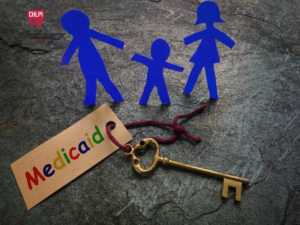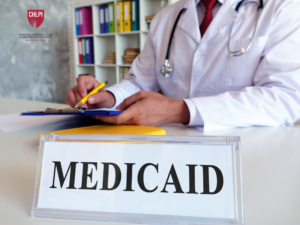Originally published on April 25, 2020 by Jurist. Written b
In just a few weeks, COVID-19 has overwhelmed the world and drastically changed our lives. Arvind Suresh, a medical student and Albert Schweitzer Fellow, has begun to research the impact that “stay at home” orders and social distancing have on communities with longstanding challenges with food insecurity.
For the vast majority of us, only grocery store trips remain on what was once a long list of routine activities outside the home. Yet, even this simple activity is now subject to external stressors as the current outbreak exacerbates the inequities and food insecurity that many households already face. In rural New Hampshire and Vermont, where Arvind’s medical school, Dartmouth, is located, there are large food deserts with no grocery stores for over 30 miles. In these regions, there is a large proportion of low-income households, inadequate access to transportation, and a limited number of food retailers providing fresh produce and healthy groceries at affordable prices. As a consequence, many communities may rely on the local convenience store to meet the majority of their nutritional needs. As nutrition status is closely linked with the immune system’s ability to mount an effective response against infectious agents such as the coronavirus, this puts communities living in food deserts at a higher risk for complications and death without adequate nutrition.
Arvind is partnering with Little Rivers Health Care, a Federally Qualified Health Center with offices in rural northeastern Vermont tasked with improving food access and nutrition literacy. The Little Rivers service area includes the largest food desert in Vermont. Although Congress has passed legislation expanding federal benefits through the Supplemental Nutritional Assistance Program (SNAP) and the Special Supplemental Nutrition Program for Women, Infants, and Children (WIC) and waived requirements for school districts to provide meals to children, these primarily reactive measures do not address the underlying problem. In response to growing patient needs and lackluster support from federal and state programs, health centers like Little Rivers have had to take matters into their own hands by repurposing staff to deliver food to patients.
Making Food Policy Work for Everyone
Even before the pandemic, one in seven Americans relied on food banks to ensure they had enough to eat. With the rising unemployment numbers each week, these needs are only rising and leading to long lines at food banks that are running empty without access to their normal food sources and donations. Congress, therefore, needs to do more to support community-oriented approaches to support food delivery rather than a one size fits all approach. FEMA should be deployed directly to hard-hit communities to support the work of nonprofits and engage in public-private partnerships. Such an approach would ensure food banks are adequately stocked and aid in deliveries to rural communities that are not well-connected to the food system.
There is also a need for comprehensive legislation that addresses the long-term impact of this public health crisis on our food system. Current data already suggest that our commercial distribution network is not capable of readily adapting to unexpected changes in product demand.
Few policies are in place to support farm workers who are producing an adequate supply but are being forced to plow over fields and dump gallons of milk they cannot sell. Flexibility could be afforded to federal and state governments to purchase food directly from farmers and redistribute them as needed to food banks. This would ensure that families are not going hungry while also supporting the livelihood of farmers so they are able to sustain their operations and support their workers.
According to a brief prepared by the Food Law and Policy Clinic at Harvard Law School, there is flexibility in existing statues that has not been used to the fullest extent possible. For example, the 2018 Farm Bill has already established a precedent for allowing online purchasing with SNAP. Yet only a few states, including New York and Washington, are currently offering online purchasing in a pilot program for SNAP recipients. No such effort has been made to implement such a program nationally. For vulnerable families who rely on WIC and SNAP, this inability to purchase food online or get free delivery widens their inequity in food insecurity, increases their exposure to COVID-19, and puts even greater stress on an already faltering food supply chain.
Balancing Public Health Needs and Individual Rights
Relating to Arvind’s work, about twenty minutes from Dartmouth, Vermont Law School Juris Doctor student and fellow Albert Schweitzer Fellow Matthew Fischer is considering various emergency public health intervention methods, such as social distancing, and their potential for inadvertently violating individual and human rights. What sacrifices can be deemed necessary to protect public health and the public’s best interest?
There is a false dichotomy being presented to Americans in today’s discourse around positive and negative rights surrounding issues of public health. Communities throughout the country have begun protesting that their civil liberties are being infringed upon by stay-at-home orders and closed businesses.
According to Ronald Bayer, a professor at the Center for the History and Ethics of Public Health at Columbia University, public health and human rights do not need to be in opposition. Bayer explained, “good public health respects civil liberties, and anything that advances human rights and civil liberties would advance public health.”
In Mississippi, Temple Baptist Church is suing the City of Greenville (Temple Baptist Church v. City of Greenville) for violating its first amendment right to freedom of religion. The city sent eight uniformed officers to end a drive-in service even when nobody was outside of their vehicle or in close contact with each other. The actions of cities like Greenville are incongruous with their intended goals when they do not carry a clear public health benefit. While religious gatherings are prohibited, state and local governments are largely ignoring the public health consequences of forcing communities to gather at the single grocery store in a food desert to buy food and allowing farmworkers to live in close quarters because they are deemed essential workers.
If governments are given so much leeway in the name of protecting public health, they should do more to address the needs of the most vulnerable. A government that preserves both positive and negative human rights would be able to ensure that individuals living in rural communities are able to meet their nutritional needs, as well as provide farmworkers and grocery store workers with the protections necessary to avoid unnecessary exposure.
Lawrence Gostin, a professor of global health law at Georgetown Law suggests a way forward to meet public health demands while maintaining basic individual rights during a pandemic. He proposes that officials ask the following questions when deciding the pros and cons of a public health intervention such as social distancing:
· Is there evidence that an individual/group pose(s) a significant risk?
· Is the measure the least restrictive option to meet the public health needs?
· Are the measures used supported by the public?
· Do the people have access to due process to challenge the intervention if desired?
· Is the intervention discriminatory or arbitrary?
Simply put, food insecurity is an injustice that during the current pandemic has revealed broader problems with our food distribution network and public health infrastructure. Government entities like Congress and FEMA should prioritize addressing the root cause of these problems through public-private partnerships that will help sustain our communities well into the future. Creative and sustainable policies implemented now can ensure both equitable food availability and support ongoing efforts to overcome the COVID-19 crisis. Rather than viewing public health and civil liberties as opposing forces, a truly robust public health framework can balance both while building solidarity around the human rights necessary for our communities to thrive.


